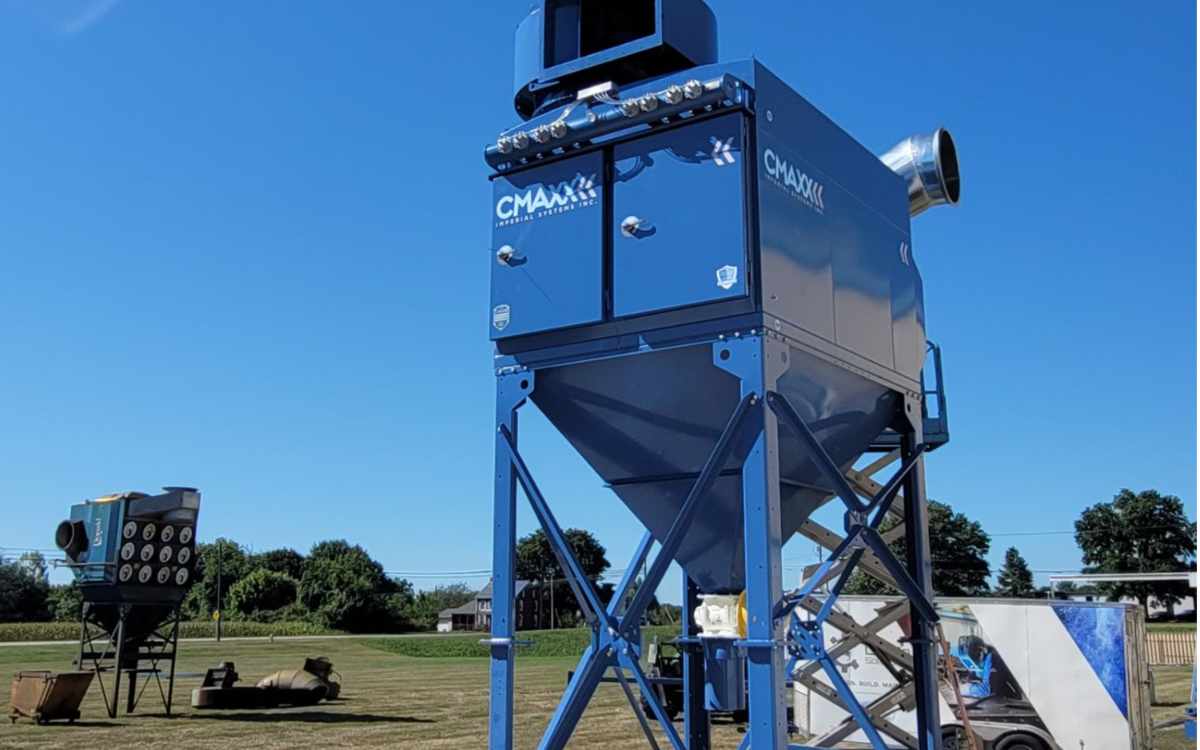In industrial settings, dust collection systems are essential to maintain compliance with regulations. But they also offer substantial cost-saving benefits. Implementing an effective air filtration unit can lead to reduced downtime, improved product quality, and enhanced worker safety, ultimately translating into significant financial savings.
Reduced Downtime
One of the most immediate and tangible benefits of dust collection systems is the reduction in downtime. Industrial processes that generate large amounts of dust and particulates often suffer from frequent machinery breakdowns and maintenance issues. Dust accumulation can clog machinery, reduce efficiency, and lead to unexpected breakdowns. By capturing dust at the source, dust collection systems prevent these issues, ensuring that machinery operates smoothly and efficiently.
- Extended Equipment Life: Dust can cause wear and tear on machinery. Consequently, this leads to more frequent repairs and replacements. Air filtration units benefit the operational life of the equipment. They do so by keeping it cleaner and reducing the abrasive effects of dust particles.
- Reduced Maintenance Costs: Frequent maintenance is not only costly but also time-consuming. However, by minimizing dust accumulation, dust filtration systems reduce the need for regular maintenance. As a result, this lowers labor costs and allows maintenance staff to focus on other, more critical tasks.
- Increased Operational Efficiency: Clean machinery operates more efficiently. Dust collection systems ensure that machines function at their optimal capacity. This reduces the risk of slowdowns and ensures consistent production rates. Therefore, the increased efficiency translates directly into higher productivity and lower operational costs.
Improved Product Quality
Dust can significantly impact product quality, especially in industries where precision and cleanliness are paramount. Contaminants can certainly lead to defects, paint blemishes, rework, and even product recalls. All of these are costly and also detrimental to a company’s reputation. Consider these benefits:
- Enhanced Product Consistency: Dust contamination can cause variations in product quality. But by maintaining a clean production environment, dust collection systems help ensure that products meet consistent quality standards, reducing the risk of defects and improving customer satisfaction and loyalty
- Reduced Waste and Rework: Defective products often need to be reworked or discarded, leading to increased material costs and wasted labor. By preventing dust contamination, air filtration systems minimize the need for rework, reducing waste and saving resources.
- Compliance with Quality Standards: Many industries have stringent quality standards that must be met to maintain certifications and comply with customer requirements. Dust collection systems help ensure that production environments meet these standards. This avoids costly fines and ensures that products can be sold in regulated markets.
Additional Dust Collection Benefits
Beyond reducing downtime and improving product quality, dust collection systems offer several other cost-saving benefits:
- Enhanced Worker Safety and Health: Dust collection systems play a crucial role in protecting worker health by reducing airborne dust and improving air quality. Healthier employees mean fewer sick days, lower healthcare costs, and higher productivity.
- Energy Savings: Efficient dust collection systems can also contribute to energy savings. By maintaining clean air and preventing dust buildup, these systems help ensure that HVAC and ventilation systems operate more efficiently, reducing energy consumption and lowering utility costs.
- Regulatory Compliance: Non-compliance with environmental and safety regulations can result in hefty fines and legal fees. Dust collection systems help businesses stay compliant with regulations, avoiding these costly penalties and the possibility of a forced shutdown.
Investing in a dust collection system is not just about meeting regulatory requirements. It’s also a strategic decision that offers significant cost-saving benefits. By reducing downtime, improving product quality, and enhancing worker safety, dust collection systems help businesses operate more efficiently and profitably. Furthermore, the initial investment in a dust collection system is quickly offset by the long-term savings and operational improvements it provides, making it a wise choice for any industrial setting.



